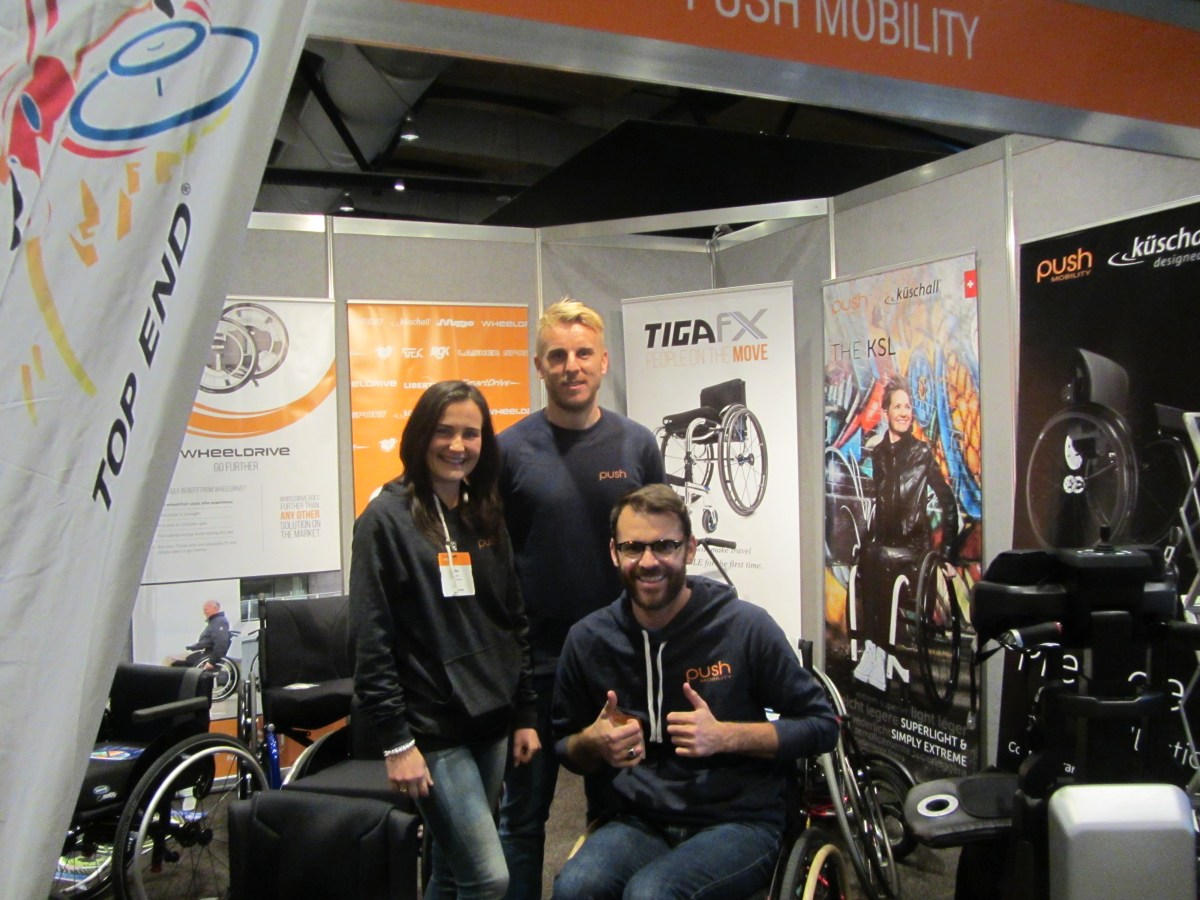If you were looking for a sell-out show then the ATSA Sydney expo had to be it. A stellar line-up of exhibitors and some informative seminar presentations contributed to the heavy visitor traffic.
ATSA executive officer Chris Sparks was delighted with the turnout. He told F2L attendance numbers hit a record high and the show “ticked all the boxes” with a positive feedback from everyone. “We have a successful formula because the exhibitors own the show. It is run by the industry for the industry, it’s their event and suppliers have a lot of ownership. “
Suppliers F2L spoke to were similarly enthusiastic. Greg Kline from GTK Rehab said it was the first time he had seen a 50-metre line-up waiting to register. “Social media certainly helped get the message out. There were more end users, lots of therapists and good attendances at our seminars. The expo is getting bigger every year.” Michael Bell from Canterbury Concepts described it as “Just too good! We ran out of catalogues and brochures. It has been an excellent show, probably the best I have been to.” Ben Ashton at Push Mobility also praised the event: “I thought this year’s ATSA was very similar to the UK Independent Living Show that is held in London. It was certainly above my expectations.”
Around the stands it was clear that visitors were engaging with suppliers as they navigated the hundreds of new products. Among the new releases was the Neat Zeat a modular indoor seating solution from Medifab and the Attidudz 1000, a power assisted wheelchair with unique electronic reverse from Wheelchair Sales. For people who have had a stroke and are unable to drive but want to keep active there were cute Ronnie Hill Design electric tricycles while Able Rehab introduced Channel Armrests that provide variable and bendable side support for weak or paralysed forearms. Milestones Therapy unveiled the Bamboo Brace, a dynamic elbow splint for children. Something different in the lavatory/shower space was the CarePort, a compact, freestanding and portable unit from 3Bridges Home Modifications that can be easily installed in any room in the home or garage where there is shelter from rain. For an effortless solution to get legs into bed Active Mobility released the LegLifter and making its first appearance at an ATSA expo was Autoslide, an automatic sliding door system with pet mode that makes access easier for people with disability or those in wheelchairs.
The two day seminar program addressed a wide range of issues with a consumer and paediatric focus including selecting the right wheelchairs, assistive technology, pressure care, mattress selection and postural support devices. There were some crowd pullers amongst the workshops including Amanda Hebben from Durable Medical Equipment who spoke about the benefits of restorative bracing in patients with neurological tone. Hebben said continually working through NT to reach muscle inhibition can prevent shortening of tissue which causes life-changing deformities. “Restorative bracing must be flexible, adjustable both at the initial fitting and over time as required, and have memory to allow it to flex back to its start position.” It was critical, she said, not to overstretch and look at the entire patient and not one joint. “If restorative measures hurt we are doing something wrong.”
Another popular presentation came from Johan du Plessis, who took the audience into the interesting world of 3D printing. A carer with Cerebral Palsy NSW and design engineer, du Plessis, gave numerous examples of how equipment from basics like cups and cutlery to devices such as wheelchairs and prosthetics can be produced at significantly lower cost using 3D printing components.
Dr Rachael Schmidt from Deakin University Faculty of Health reported on an in-depth case study into the Australian wheelchair seating service experience with contributions from four stakeholder perspectives that included 11 consumers, five care providers, 28 prescribing clinicians and 16 vendors. The findings are particularly relevant as a sustainable seating service sector is essential within the current NDIS environment. According to Schmidt, Australia urgently needs a robust seating service with capacity to sustainably address this empowered consumer cohort with procurement control, technology and service choices. For clinicians interested in the study findings contact the author at: rachael@olexports.com.au
Caption: The Push Mobility team give the ‘thumbs-up’ to the expo.

